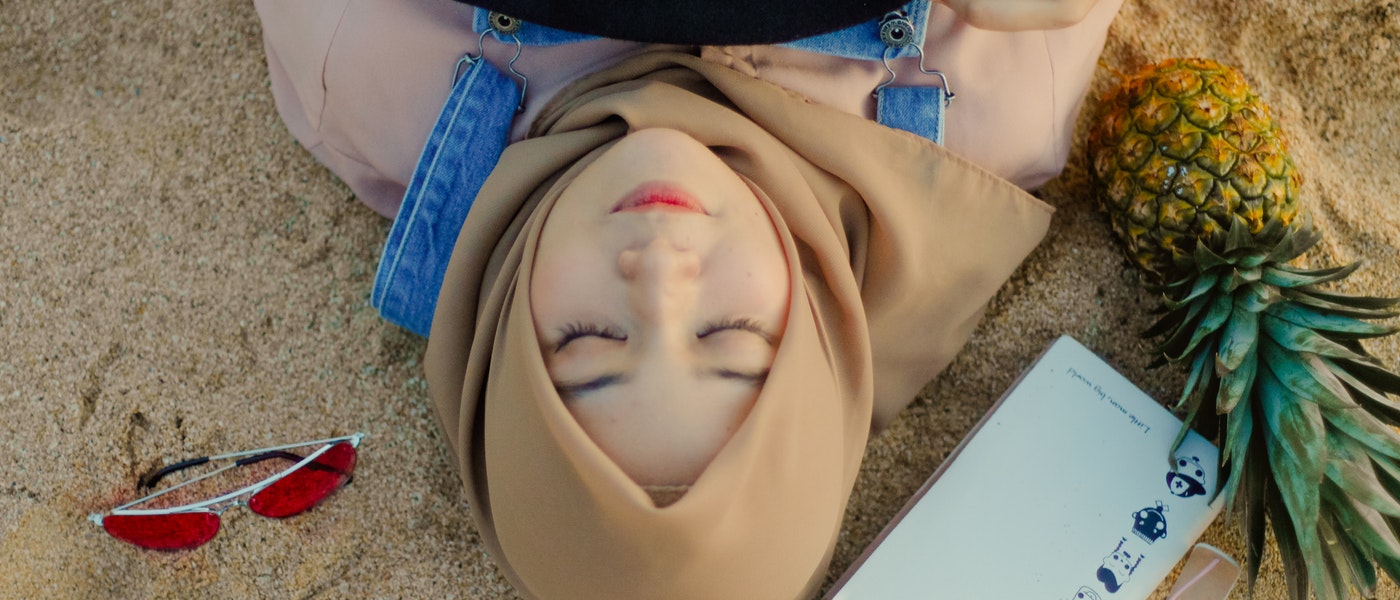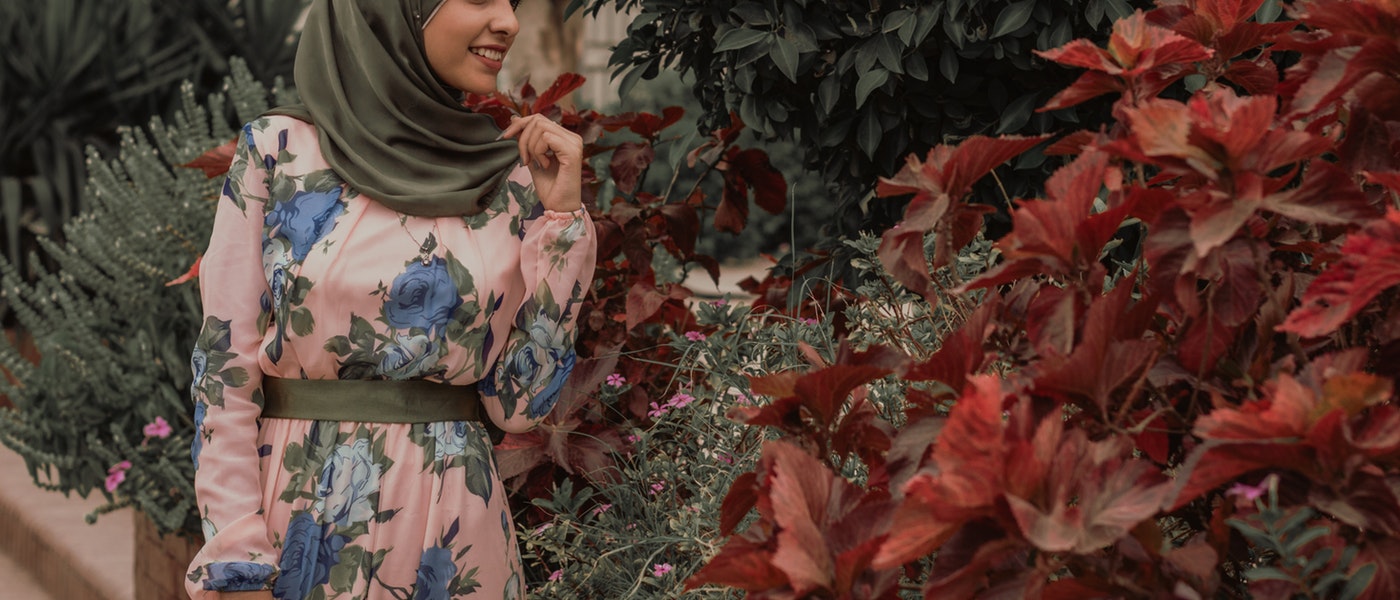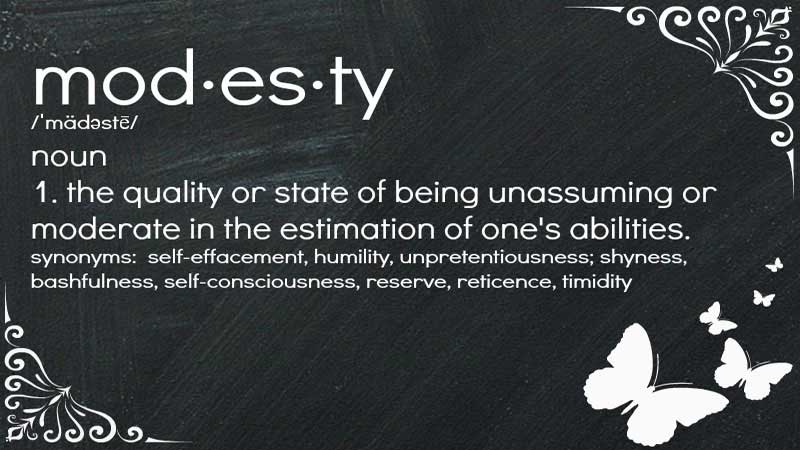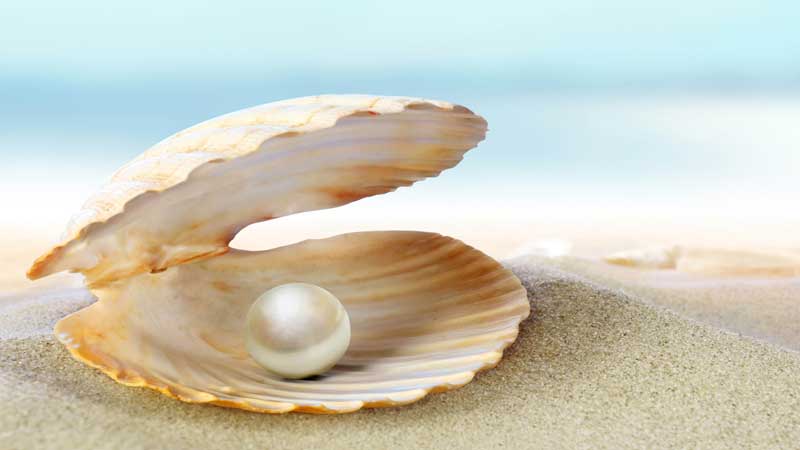

What Muslim Women Do for Fun?
Those who are not Muslim and committed to religion may think that Muslim women cover themselves in front of men. They do not wear make-up. They do not have boyfriends. They do not take part in mixed parties with men where they can dress up and flirt, and dance with music. What is the sort of life that they have? How do they enjoy life?
Also, non-Muslim women may look at the eastern type of Muslim women’s lifestyle and say: do they not get bored of staying home and raising children and taking care of their husband all the time? Do they not want some time for themselves?
This way of thinking makes some of them so worried about Muslim women that they start campaigns for defending Muslim women and try to awaken them for their very normal rights!
The Miserable Life of a Non-Muslim Woman!!!
On the other hand, many Muslim women and I, when looking at the lifestyle of non-Muslim women, think to ourselves that they do not cover themselves in the presence of their marriageable kin (non-Mahram) men.
They dance with any man! They spend a lot of time dressing up and wearing make-up to go to nightclubs or parties to present themselves to men! So that one man may say: “you look so beautiful!”, and they say: “Thanks, I’m flattered!”
They go to the same swimming pools that men go, nearly nude! Forget about Islamic cover, where does modesty go?! They taste different boys in life before they get married, or let’s say they allow different boys to taste them! What is that sort of life? Do they not get offended by being degraded so much?
Muslim women may look at non-Muslim women’s western type of lifestyle and say: do they not get bored when they do not have big family gatherings, where all children and grandchildren come together around their grandparents? Do they not miss big parties in which instead of drinking and going out of mind, people sit together and talk about their issues and find out if one of the group has a problem, then everyone tries to sort it out?!
Now as a Muslim woman with the background of growing up in a huge eastern family, and then experiencing the Western lifestyle for many years, let me tell you what Muslim women do for fun. What they enjoy in life and why they stick to the eastern lifestyle without getting bored.
What is the Islamic Eastern Lifestyle Like?
In my definition, the eastern Islamic lifestyle does not belong to the East only; rather it has remained in the East while it has disappeared in the West. You may find many people in the East who live a western lifestyle. You may as well find people in the West who live an eastern lifestyle.
I would like to list a few characteristics that are bold in an eastern Islamic lifestyle:
The high amount of respect that people have towards each other, especially the respect for the elderly or the teachers.
The importance of family.
The priority of the community over the individual.
Definition of freedom; In their social life, People are free as far as their freedom does not disturb others, while in western lifestyle people are free to do what they wish to do as long as it is not against the social rules; no matter if it may bother other individuals.
Ethics and human values are stronger than law.
The above points and many other similar points come together and shape a viewpoint about humans and life. And it is due to that point of view that eastern or western lifestyle develops.
How Are These Related to Muslim Women’s Fun?
As long as we do not become familiar with other people’s ideologies, we will not recognize the difference of opinions about the same issues.
When Muslim women, all over the world, have a tendency towards the eastern lifestyle, that has been completed by the Islamic teachings, in many cases, they will no more enjoy the same things that non-Muslims like. No matter in which part of the world you live as a Muslim, but when you are a Muslim, your mindset is shaped in a way that you enjoy the Islamic lifestyle.
With the sort of ideology that Muslim women have, they no more enjoy exhibiting their bodies for their marriageable kins (non-Mahram). They do not enjoy flirting with different guys all the time or going to nightclubs. While at the same time many of them may enjoy having lots of children and being in big families, in which they come together now and then, in order to empower themselves with the energy of the community.
The Islamic lifestyle gives us a vision and a spiritual goal (unlike most of the western goals which are materialistic). A Muslim woman (like a Muslim man) defines her activities in harmony with her beliefs, to help her achieve her spiritual goal in life. Therefore, she defines her fun activities in a way that does not contradict her path of growth.
What do Muslim Women Do for Fun?
Finally, keeping in mind all the above, there is no difference between Muslim men and Muslim women in terms of having fun. It might be a matter of modesty in relationships, which is recommended not only for women but also for men. Suggestions about different types of lawful (Halal) fun is available in an article with the title “What is lawful (Halal) fun?”.
Overall, Muslim women can have all sorts of fun that do not contradict the Islamic values and do not deviate them from their central roles such as motherhood as well. (Please note that by motherhood Islam does not mean only giving birth to the baby and feeding her/him. But the most important social role of a mother is to nurture the child to grow up into a great human).
Share This Article

Can I Convert to Islam And not Wear Hijab?
To answer this question about wearing Hijab, we should first understand why God has sent down religion to man and why He orders man what to do and what to avoid.
Imagine a person who invents an electronic device, for example, a computer; he knows how the computer should be used to give the best outcome. Therefore, there is always a manual coming with the computer that tells us how to use it for a better result. So the user uses the manual to keep the computer safe and productive.
God has created man, and He knows what is good and what is harmful to him/her. He sent the religion and the Quran as a guide for human beings. Following the instructions in the book will lead to the useful, peaceful and productive life of a human.
Why so many hard rules?
Some people say that being a Muslim is not merely to pray or fast or observe the Islamic clothing rules (Hijab), but it is the faith of a person that makes him/her a true Muslim, and obeying the Islamic rules is not as important as having pure faith in God. But the fact is that reaching such levels of faith is only possible by passing the phase of being in complete obedience to God.
Islam means submission and being a Muslim means that one accepts to submit to God’s orders. The father of all Muslims, Christians, and Jews according to the Quran is Prophet Abraham (PBUH): “the faith of your father, Abraham. He named you ‘Muslims’ before” (22: 78). Therefore, from the time of Prophet Abraham (PBUH) the followers of all monotheist religions are called Muslims.
Although some Islamic rules may look hard to obey, the fact is that “Allah desires ease for you, and He does not desire hardship for you” (2: 185), and the rulings of Islam are to make our life easier, not harder. God has provided specific frameworks for us to reach a comfortable, peaceful and prosperous life, and to face fewer challenges in life. One of those rules is observing the Islamic dress code (wearing Hijab).
Our problem is that we can only see limited dimensions of an issue. For example, in case of the Islamic dress code (Hijab), we just see that it may be hard for women to cover up in a specific way. Or they may be unable to present their beauties in the society, while the Islamic dress code (Hijab) is there to make women protected in their social relations. Hijab is for women to be respected and recognized because of their character, beliefs and capabilities, NOT their appearance and physical beauty. It also helps them be less troubled by those men who have sick hearts [i].
Can one be a Muslim and not wear the Hijab?
Before one realizes that Islam is the real truth and as long as people are in search of the truth, there is no blame on them for not being a Muslim and not following the Islamic rules. But, as soon as one understands that Islam is the true religion from God and the most perfect one, then he/she should logically become a Muslim.
After accepting the main principles of Islam (the Islamic axioms), if you have only a few misconceptions about some of the Islamic rulings such as the Islamic dress code (Hijab), it is suggested that you embrace and try to observe all the Islamic rules, especially the Islamic dress code (Hijab).
This is just like taking a prescription from our GP when feel obliged to take all the medicine for a better result without knowing the reason for using some of it. As you start acting according to some of those rules that do not make sense to you, you can begin to study and to understand the reason for some details that may be unknown to you right now.
When we believe in Islam, we should believe in it as a whole. It is not correct to accept some parts of it and reject the other parts because in that case, the peaceful life that is promised to Muslims by obeying all religious rules will not be reachable. This uncompleted obedience is like a machine that has lost some of its components and does not work properly. A Muslim who does not obey all the rulings still counts as a Muslim but does not gain the entire benefits that Islam can bring to a person with complete obedience.
Remember again that Islam means being submissive to God’s orders. We always aim to be the best at something that we start. For example, we may strive to be the best in our education or our career. The same should be with our religion so that one day we may enjoy being as friendly to God as Abraham (PBUH).
“Who has a better religion than him who submits his will to Allah, being virtuous, and follows the creed of Abraham, a Hanif? And Allah took Abraham for a dedicated friend.” (4: 125)
Conclusion
Becoming a Muslim and obeying the Islamic rules has its own adversities, but at the same time, it has many advantages. A real Muslim who does not only stick to apparent rules of Islam and uses the spiritual tips and hints for his/her spiritual growth can reach the most peaceful life; “Look! The friends of Allah will indeed have no fear, nor will they grieve” (10: 62)
Notes:
[i] Hijab
Read More

Hijab in Islam : the Real Meaning
When talking about Hijab in Islam , the first impression that comes to mind is a cloth covering certain parts of women’s body. But is this the real meaning of the Hijab? Is that all Islam intended by ordering to wear Hijab; covering women’s bodies? This is surely one of the functions but is not the whole thing.
Hijab in Islam concerns men as much as women. Indeed, by introducing Hijab, Islam aims to set out a framework on how we dress, how we look, and how we interact in society. This also originates from a superior objective: limiting the human desires towards the opposite gender to one’s private life in the form of a legal marriage and letting the society focus on work and productivity [1].

The Islamic Dress Codes
Islam requires both women and men to dress simply, modestly, and with dignity. Simply said, one should not dress in a way to draw the attention of the others to their physical features. Islam has forbidden wearing the clothing that attracts the attention of the general public, making its wearer known for it because of the type of the fabric, its color, model or because of being worn and unclean [1]; and this applies to women and men both.
According to the Holy Quran, covering and Hijab of body dates back to the time of Adam and Eve in the Garden of Eden: “So when they tasted of the tree, their nakedness became exposed to them, and they began to stitch over themselves with the leaves of paradise.” (7:22). This demonstrates that following the standards of modesty is innate in all human beings, and so do the Islamic dress codes.
Since modesty as the reason to wear the Hijab in Islam is a subjective term, the Quran and Sunnah [i] have laid out the bare minimum to prevent any confusion. The absolute minimum covering in Islam set for men is loose and unrevealing clothing from his navel to his knee [1]. Men are not allowed to wear gold jewelry, silk clothing, or adornments that are considered feminine [1].
Muslim women, like men, are not permitted to wear tight and revealing clothing; especially the ones showing the details of their body. The clothing should cover their hair and body, but covering the face and the hands, from the wrist to the fingers, is not mandated [2]. It is also forbidden for women to wear strong perfume, heavy make-up, or such jewelry that makes a jingle noise with movement and attracts the attention of others, especially strange men. They should not reveal their ornament either. These all let the Muslim women to be recognized in society by the content of their character rather than by their physical appearance and do force men to cease objectifying women.
It should be noted that besides these dress codes, Islam has mandated us to wear beautiful and clean clothes; especially when dealing with others and during prayers: “O Children of Adam! Put on your adornment on every occasion of prayer” (7:31). This also should be considered as much as the clothing rules.
Controlling the Glance as A Part of Hijab in Islam
Islamic precept has introduced a particular way of decency by presenting the concept of controlling the gaze. It is stated in the Quran that: “Tell the faithful men to cast down their looks” (24:30); and: “And tell the faithful women to cast down their looks” (24:31). It means that women and men are both required to keep their gazes downcast unless permitted [ii].
Imam Sadiq (AS) said: “A glance is a poisoned arrow from the arrows of Satan. He who refrains from it [glancing] for the sake of Allah and nothing other than Him, Allah will grant him a faith, the taste of which he will experience.” [3].
Keeping the glance downcast prevents men from lustful thoughts when looking at any woman other than their wife and allows women to protect themselves and guard their modesty. If one truly believes that God is present everywhere and at every second, He sees all he does [iii], and “He knows the treachery of the eyes, and what the breasts hide.” (40:19), he controls his glance in public and in private.

Limits to Talking to the Opposite Gender
As society is composed of women and men, their social interactions and communications are inevitable. Emphasizing the concept of decency, Islam has special guidelines for the interactions between members of the opposite sex. Islam, as the religion of moderation [iv] [4], does not allow a free relation, neither severely restricts this interaction, but allows women and men to communicate in good intention [5]. This means that the speech should be direct and both sides should consider the human identity of the other person, not the gender.
Allah says in the Quran: “wives of the Prophet! You are not like other women: if you are wary [of Allah], do not be complaisant in your speech, lest he in whose heart is a sickness should aspire; speak honorable words.” (33:32).
Although this verse of the Quran addresses the wives of the Prophet Muhammad (PBUH&HP) who were mostly at the old age, it also applies to all other women especially young ones [6]. This requires Muslims, specifically women, to use a serious tone of voice and expression when talking to the opposite gender. Otherwise, their sweet words might seduce the person whose heart might be diseased with lust.
Notes:
[i] The lifestyle and sayings of Prophet Muhammad (PBUH)
[ii] e.g., in the case that a witness looks at the face of a non-mahram to recognize him/her.
[iii] “does he not know that Allah sees [him]?” (96:14)
[iv] “Thus We have made you a middle nation that you may be witnesses to the people” (2:143)
References:
- HIjab in Islam
- A. Aroussi Howayzi, "Tafsir Noor al-Thaqalayn", vol. 3/589, T. 105.
- M. B. Majlesi, "Bihar al-Anwar", vol. 101, p. 40.
- N. Makarem Shirazi, "Tafsir Nemooneh", vol. 1, p. 483.
- Hijab in Holy Quran
- M. Qara'ati, "Tafsir Surah al Ahzab."
Read More

